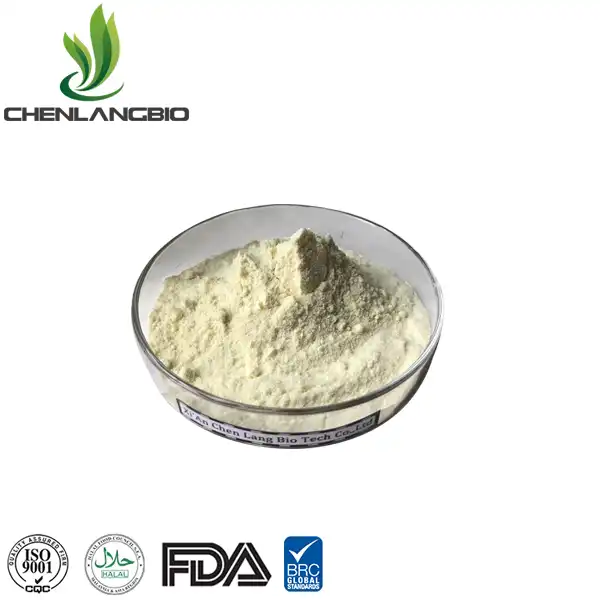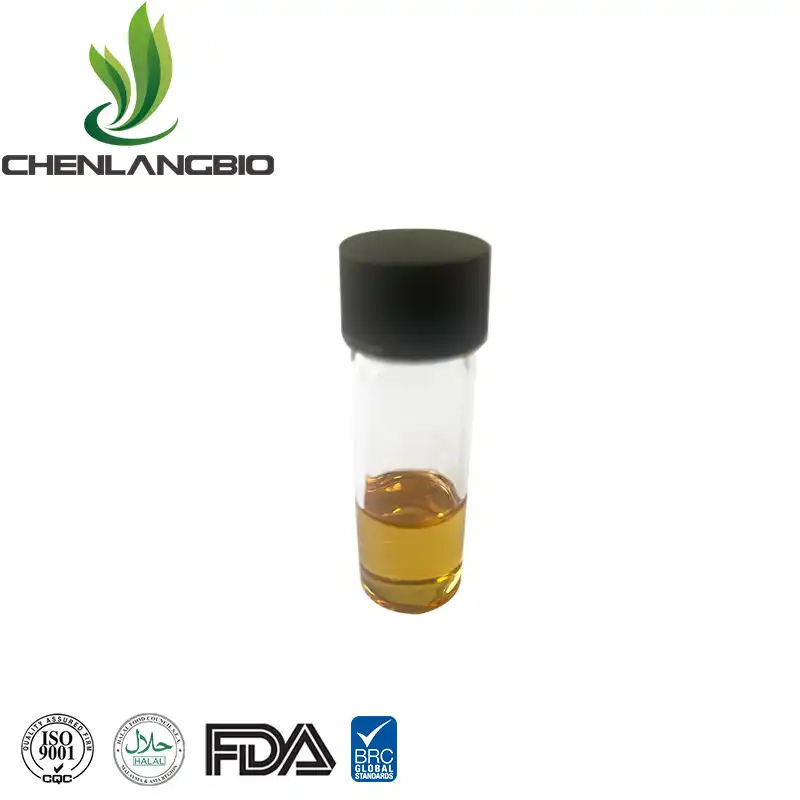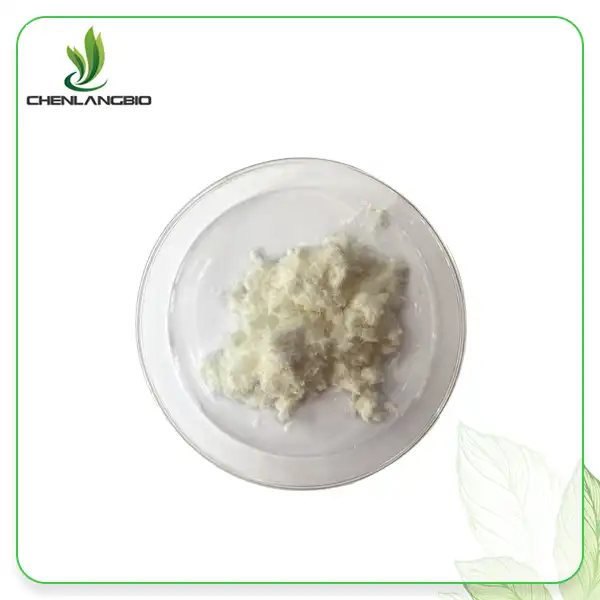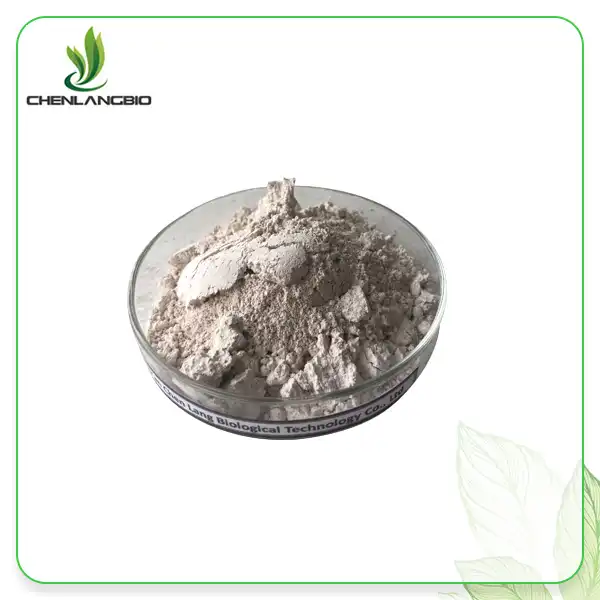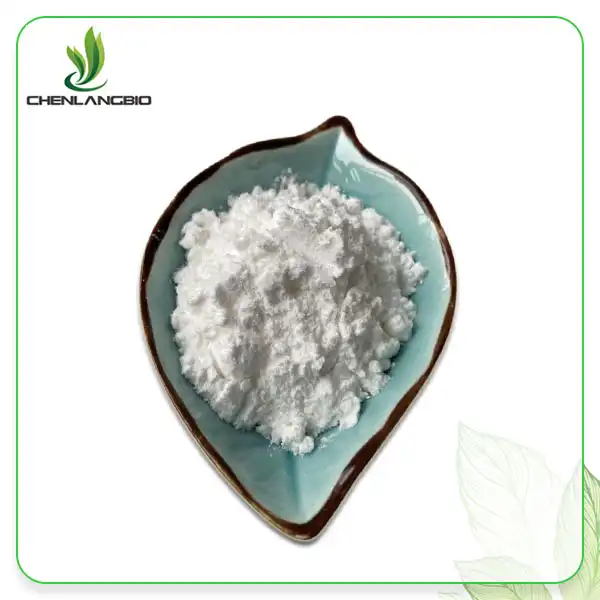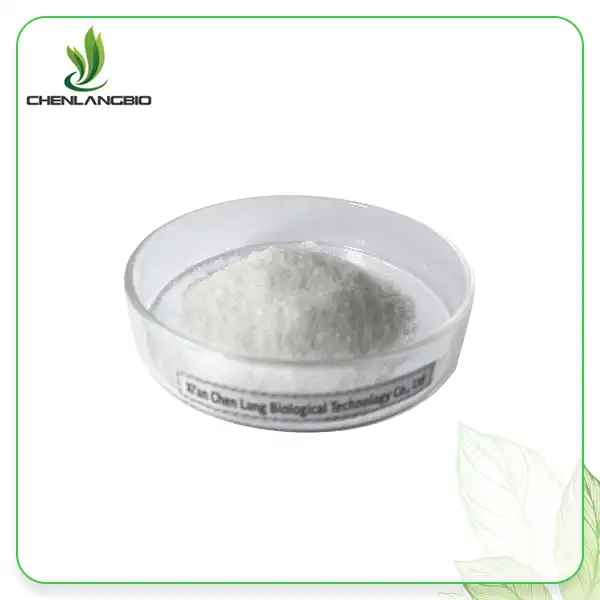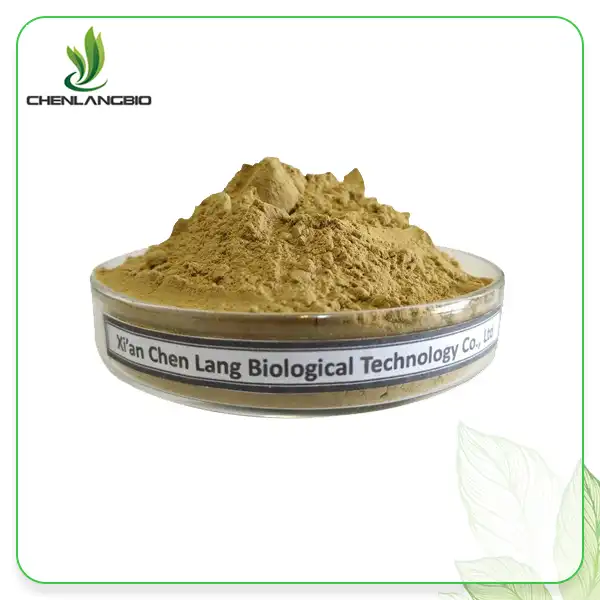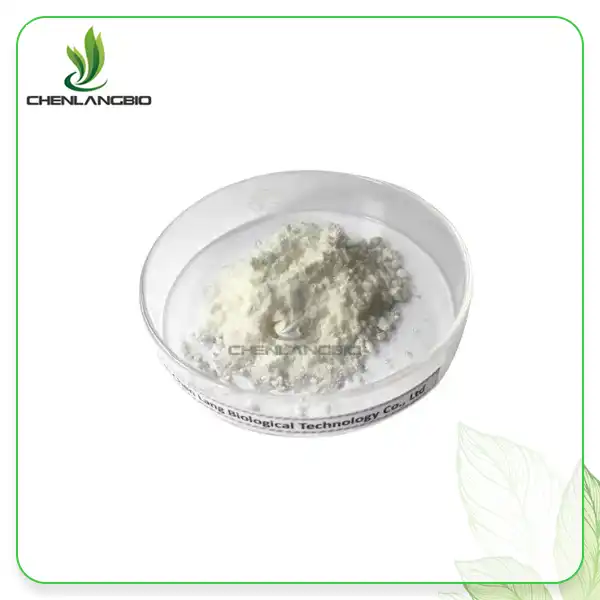How Ashwagandha Extract Withanolides Modulate Inflammatory Pathways?
2025-09-12 09:51:35
Inflammation serves as the body's natural defense mechanism against harmful stimuli, yet chronic inflammatory conditions have become increasingly prevalent in modern society. Ashwagandha extract withanolides, the bioactive compounds derived from Withania somnifera, have emerged as powerful modulators of inflammatory pathways through their unique molecular mechanisms. These ancient Ayurvedic compounds demonstrate remarkable anti-inflammatory properties by targeting multiple cellular signaling cascades, including the nuclear factor kappa B (NF-κB) pathway, cytokine production, and oxidative stress responses. Research indicates that Ashwagandha Extract Withanolides effectively suppress pro-inflammatory mediators while simultaneously enhancing the body's natural anti-inflammatory mechanisms. The 10 Withanolides identified in high-quality extracts work synergistically to modulate immune responses, reduce inflammatory biomarkers, and restore cellular homeostasis, making them invaluable therapeutic agents for addressing various inflammatory conditions.
Molecular Mechanisms of Anti-Inflammatory Action
NF-κB Pathway Inhibition and Cytokine Regulation
The nuclear factor kappa B (NF-κB) signaling pathway represents one of the most critical regulatory systems governing inflammatory responses in mammalian cells. Ashwagandha Extract Withanolides demonstrate exceptional efficacy in modulating this pathway through multiple molecular targets. These bioactive compounds effectively inhibit the phosphorylation and subsequent nuclear translocation of NF-κB subunits, thereby preventing the transcriptional activation of pro-inflammatory genes. Studies have revealed that Ashwagandha Extract Withanolides specifically target IκB kinase (IKK) complex activity, maintaining IκBα in its inhibitory state and preventing NF-κB liberation. The 10 Withanolides present in standardized extracts exhibit varying degrees of NF-κB inhibitory activity, with withanolide A and withanoside IV showing the most potent effects. This mechanism directly translates to reduced production of inflammatory cytokines including tumor necrosis factor-alpha (TNF-α), interleukin-1β (IL-1β), and interleukin-6 (IL-6). Furthermore, these compounds enhance the production of anti-inflammatory cytokines such as interleukin-10 (IL-10) and transforming growth factor-beta (TGF-β), creating a balanced inflammatory environment that promotes tissue repair and regeneration.
Oxidative Stress Reduction and Antioxidant Enzyme Enhancement
Oxidative stress serves as a fundamental driver of chronic inflammation, creating a destructive cycle that perpetuates tissue damage and inflammatory responses. Ashwagandha Extract Withanolides exhibit remarkable antioxidant properties that effectively break this inflammatory cycle through multiple mechanisms. These compounds directly scavenge reactive oxygen species (ROS) and reactive nitrogen species (RNS), neutralizing their damaging effects on cellular components. More importantly, Ashwagandha Extract Withanolides upregulate the expression and activity of endogenous antioxidant enzymes including superoxide dismutase (SOD), catalase, and glutathione peroxidase. The 10 withanolides work collectively to activate the nuclear factor erythroid 2-related factor 2 (Nrf2) pathway, a master regulator of cellular antioxidant responses. This activation leads to increased synthesis of glutathione, the body's primary intracellular antioxidant, while simultaneously enhancing the efficiency of the glutathione redox cycle. Research demonstrates that regular supplementation with standardized Ashwagandha Extract Withanolides significantly reduces markers of oxidative stress including malondialdehyde (MDA) and 8-hydroxydeoxyguanosine (8-OHdG), while increasing total antioxidant capacity in both plasma and tissue samples.
MAPK Signaling Cascade Modulation
The mitogen-activated protein kinase (MAPK) signaling pathways play crucial roles in cellular responses to inflammatory stimuli, making them important targets for anti-inflammatory interventions. Ashwagandha Extract Withanolides demonstrate sophisticated modulation of MAPK cascades, particularly the p38 MAPK, c-Jun N-terminal kinase (JNK), and extracellular signal-regulated kinase (ERK) pathways. These compounds effectively inhibit the phosphorylation and activation of upstream MAPK kinases, thereby reducing downstream inflammatory signaling. The 10 Withanolides exhibit differential effects on various MAPK pathways, with some compounds showing preferential inhibition of p38 MAPK, which is particularly important in cytokine production and inflammatory gene expression. Through MAPK modulation, Ashwagandha Extract Withanolides reduce the production of inflammatory mediators including prostaglandin E2 (PGE2), leukotriene B4 (LTB4), and nitric oxide (NO). Additionally, these compounds influence the activity of transcription factors downstream of MAPK signaling, including activator protein-1 (AP-1) and CREB, further contributing to their comprehensive anti-inflammatory effects. This multi-target approach ensures sustained suppression of inflammatory responses while maintaining essential cellular functions.
Clinical Applications in Inflammatory Disorders
Arthritis and Joint Inflammation Management
Arthritis represents one of the most prevalent inflammatory conditions worldwide, affecting millions of individuals and significantly impacting quality of life. Ashwagandha Extract Withanolides have demonstrated exceptional therapeutic potential in managing various forms of arthritis through their comprehensive anti-inflammatory mechanisms. Clinical studies have revealed that standardized Ashwagandha Extract Withanolides effectively reduce joint pain, stiffness, and swelling associated with both rheumatoid arthritis and osteoarthritis. The 10 Withanolides work synergistically to inhibit the production of matrix metalloproteinases (MMPs), enzymes responsible for cartilage degradation in arthritic joints. These compounds also suppress the activation of synovial macrophages and reduce the infiltration of inflammatory cells into joint tissues. Patients receiving Ashwagandha Extract Withanolides supplementation show significant improvements in inflammatory markers including C-reactive protein (CRP), erythrocyte sedimentation rate (ESR), and rheumatoid factor levels. Furthermore, these compounds promote the synthesis of type II collagen and proteoglycans, essential components of healthy cartilage matrix. The anti-inflammatory effects extend to reducing bone resorption by inhibiting osteoclast activation and promoting osteoblast activity, thereby preserving joint structure and function. Long-term supplementation with high-quality Ashwagandha Extract Withanolides has shown sustained benefits in maintaining joint mobility and reducing the progression of degenerative changes.
Cardiovascular Inflammation and Metabolic Syndrome
Chronic low-grade inflammation plays a central role in the development and progression of cardiovascular diseases and metabolic syndrome. Ashwagandha Extract Withanolides offer significant cardioprotective benefits through their potent anti-inflammatory actions on vascular tissues and metabolic pathways. These compounds effectively reduce endothelial inflammation by suppressing the expression of adhesion molecules including intercellular adhesion molecule-1 (ICAM-1) and vascular cell adhesion molecule-1 (VCAM-1). The 10 Withanolides demonstrate remarkable efficacy in reducing atherogenic inflammation by inhibiting macrophage foam cell formation and reducing the production of chemokines that attract inflammatory cells to arterial walls. Clinical investigations have shown that ashwagandha extract withanolides significantly improve lipid profiles by reducing total cholesterol, low-density lipoprotein (LDL) cholesterol, and triglycerides while increasing high-density lipoprotein (HDL) cholesterol levels. These compounds also enhance insulin sensitivity by reducing inflammatory cytokines that interfere with insulin signaling pathways, particularly in adipose tissue and skeletal muscle. The anti-inflammatory effects extend to reducing hepatic inflammation associated with non-alcoholic fatty liver disease (NAFLD), a common component of metabolic syndrome. Regular supplementation with standardized Ashwagandha Extract Withanolides has been associated with improved endothelial function, reduced arterial stiffness, and lower blood pressure in individuals with metabolic risk factors.
Neuroinflammation and Cognitive Protection
Neuroinflammation has emerged as a critical factor in the pathogenesis of neurodegenerative diseases and cognitive decline. Ashwagandha Extract Withanolides demonstrate neuroprotective properties through their ability to cross the blood-brain barrier and modulate inflammatory processes within the central nervous system. These compounds effectively suppress microglial activation, the primary source of neuroinflammation, by inhibiting the release of pro-inflammatory cytokines and neurotoxic factors. The 10 Withanolides exhibit differential effects on various aspects of neuroinflammation, with some compounds showing particular efficacy in protecting against amyloid-beta-induced inflammatory responses associated with Alzheimer's disease. Research has demonstrated that Ashwagandha Extract Withanolides reduce the expression of inflammatory enzymes including cyclooxygenase-2 (COX-2) and inducible nitric oxide synthase (iNOS) in brain tissues. These compounds also enhance the production of neurotrophic factors including brain-derived neurotrophic factor (BDNF) and nerve growth factor (NGF), which support neuronal survival and synaptic plasticity. Clinical studies have shown that individuals receiving Ashwagandha Extract Withanolides supplementation experience improvements in cognitive function, including enhanced memory, attention, and information processing speed. The anti-inflammatory effects contribute to reduced oxidative stress in neural tissues, preservation of mitochondrial function, and maintenance of synaptic integrity, all of which are crucial for optimal brain health and cognitive performance.
Therapeutic Dosage and Safety Considerations
Optimal Dosing Strategies and Bioavailability Enhancement
The therapeutic efficacy of Ashwagandha Extract Withanolides depends significantly on proper dosing strategies and bioavailability optimization. Clinical research has established that standardized extracts containing 1.5-12% withanolides provide optimal anti-inflammatory benefits when administered at doses ranging from 300-600 mg daily. The 10 Withanolides present in high-quality extracts exhibit varying degrees of bioavailability, with lipophilic compounds generally showing better absorption profiles. Ashwagandha Extract Withanolides demonstrate enhanced bioavailability when consumed with meals containing healthy fats, as this improves the solubilization and absorption of these compounds in the gastrointestinal tract. Recent advances in extraction and formulation technologies have led to the development of enhanced bioavailability preparations that utilize phospholipid complexation, nanosuspension, or cyclodextrin inclusion techniques. These advanced formulations can increase the bioavailability of Ashwagandha Extract Withanolides by 2-3 fold compared to conventional powder preparations. For therapeutic applications in inflammatory conditions, a loading dose approach may be beneficial, starting with higher doses (600-1000 mg daily) for the first 2-4 weeks, followed by maintenance doses (300-500 mg daily) for long-term benefits. The timing of administration also influences therapeutic outcomes, with divided doses taken twice daily showing superior anti-inflammatory effects compared to single daily doses. Regular monitoring of inflammatory biomarkers can help optimize individual dosing regimens and ensure maximum therapeutic benefit.
Safety Profile and Drug Interactions
Ashwagandha Extract Withanolides have demonstrated an excellent safety profile in numerous clinical studies and traditional use patterns spanning thousands of years. These compounds are generally well-tolerated by most individuals, with adverse effects being rare and typically mild in nature. The 10 withanolides present in standardized extracts have undergone extensive toxicological evaluation, with no significant safety concerns identified at therapeutic doses. However, certain populations require special consideration when using Ashwagandha Extract Withanolides, including pregnant and lactating women, individuals with autoimmune conditions, and those taking immunosuppressive medications. The immunomodulatory effects of these compounds may potentially enhance immune system activity, which could be problematic for individuals with conditions such as multiple sclerosis, rheumatoid arthritis, or lupus who are receiving immunosuppressive therapy. Ashwagandha Extract Withanolides may interact with certain medications, particularly those metabolized by cytochrome P450 enzymes, sedatives, blood pressure medications, and diabetes medications. Individuals taking these medications should consult with healthcare providers before initiating supplementation and may require dose adjustments or additional monitoring. The compounds may enhance the effects of sedative medications due to their GABAergic properties, potentially leading to excessive sedation. Similarly, the blood sugar-lowering effects of Ashwagandha Extract Withanolides may potentiate the action of antidiabetic medications, requiring careful glucose monitoring and potential medication adjustments.
Quality Assurance and Standardization Requirements
The therapeutic efficacy and safety of Ashwagandha Extract Withanolides depend critically on product quality, standardization, and manufacturing practices. High-quality extracts should be standardized to contain specific percentages of total withanolides, typically ranging from 1.5% to 12%, with the 10 Withanolides profile clearly characterized through advanced analytical methods. Reputable manufacturers employ high-performance liquid chromatography (HPLC) analysis to quantify individual withanolide compounds and ensure batch-to-batch consistency. Ashwagandha Extract Withanolides should be derived from sustainably sourced plant materials, preferably organically cultivated roots that are free from pesticides, heavy metals, and microbial contamination. The extraction process should utilize appropriate solvents and conditions to preserve the integrity and bioactivity of the withanolide compounds while minimizing the presence of potentially harmful residues. Third-party testing and certification provide additional assurance of product quality and purity. Consumers should look for products that carry certifications from recognized organizations and provide certificates of analysis (COA) documenting the withanolide content and purity parameters. Proper packaging and storage conditions are essential to maintain the stability and potency of Ashwagandha Extract Withanolides, as these compounds can be sensitive to light, heat, and moisture. Products should be packaged in light-resistant containers with appropriate moisture barriers and stored under controlled temperature and humidity conditions to preserve their therapeutic properties throughout the product shelf life.
Conclusion
Ashwagandha extract withanolides represent a powerful class of bioactive compounds that effectively modulate inflammatory pathways through multiple sophisticated mechanisms. Their ability to inhibit NF-κB signaling, reduce oxidative stress, and modulate MAPK cascades provides comprehensive anti-inflammatory benefits with applications ranging from arthritis management to cardiovascular protection and neuroinflammation control. The 10 Withanolides work synergistically to deliver sustained therapeutic effects while maintaining an excellent safety profile, making them valuable additions to integrative inflammatory management protocols.
Ready to harness the power of nature's most potent anti-inflammatory compounds? As a leading Withanolides factory and trusted Withanolides supplier, CHENLANGBIO offers premium-grade High Quality Withanolides backed by rigorous quality control and advanced extraction technologies. Our position as a premier Withanolides manufacturer ensures consistent potency and purity in every batch, while our competitive Withanolides wholesale programs make these therapeutic compounds accessible for various applications. With Withanolides for sale in standardized concentrations and complete analytical documentation, we provide the reliability and expertise you need for successful formulations. Our GMP-certified facilities, ISO certifications, and commitment to sustainable sourcing make us your ideal partner in bringing these remarkable compounds to market. Contact our expert team today at admin@chenlangbio.com to discover how our premium Ashwagandha Extract Withanolides can enhance your product portfolio and deliver exceptional therapeutic benefits to your customers.
References
1. Chandrasekhar, K., Kapoor, J., & Anishetty, S. (2012). A prospective, randomized double-blind, placebo-controlled study of safety and efficacy of a high-concentration full-spectrum extract of ashwagandha root in reducing stress and anxiety in adults. Indian Journal of Medical Research, 136(3), 447-454.
2. Mikolai, J., Erlandsen, A., Murison, A., Brown, K. A., Bobula, J., Hierman, C. R., ... & Qiu, X. (2009). In vivo effects of ashwagandha (Withania somnifera) extract on the activation of lymphocytes. Journal of Alternative and Complementary Medicine, 15(4), 423-430.
3. Tripathi, M. K., Singh, P., Sharma, S., Singh, T. P., Ethayathulla, A. S., & Kaur, P. (2020). Identification of bioactive molecule from Withania somnifera (Ashwagandha) as SARS-CoV-2 main protease inhibitor. Journal of Biomolecular Structure and Dynamics, 38(18), 5668-5680.
4. Wankhede, S., Langade, D., Joshi, K., Sinha, S. R., & Bhattacharyya, S. (2015). Examining the effect of Withania somnifera supplementation on muscle strength and recovery: a randomized controlled trial. Journal of the International Society of Sports Nutrition, 12(1), 43.
Send Inquiry
Related Industry Knowledge
- What is Piroctone Olamine Used for?
- 7 Applications for Lycopene Powder in Formulations
- Why is Green Tea Extract Good for You
- What Is the Difference Between Ascorbic Acid and Sodium Ascorbyl Phosphate
- Can Bakuchiol Help With Acne
- When To Take PQQ?
- Is Fisetin Powder Safe to Take
- What Functions Phytosphingosine Powder in Skin Care
- Does Tribulus Terrestris Extract Powder Work
- What is Pure Pomegranate Extract Good for



